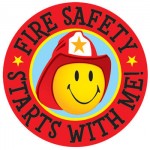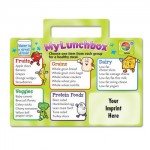 Teaching children about fire safety is an important and rewarding experience. Parents around the United States should utilize the themes provided by Fire Safety Week to launch discussions about the proper steps to take in the event of a fire. When your child grasps these imperative concepts, you can reward them with fire safety products from Positive Promotions.
Teaching children about fire safety is an important and rewarding experience. Parents around the United States should utilize the themes provided by Fire Safety Week to launch discussions about the proper steps to take in the event of a fire. When your child grasps these imperative concepts, you can reward them with fire safety products from Positive Promotions.
The first fire safety rule children should be taught is that once they have escaped a burning home, never reenter for anything, not even pets. We can replace things, but not lives, and even though we love our pets, human life comes first. Children should be taught not to hide during a house fire. Kids, especially younger ones, may be afraid of firemen and women, who look scary in their masks and protective equipment. A live demonstration by a firefighter is the best way to accomplish this.
Plan a Fire Escape Route: It’s important that each family member understands the best route for escape in the event of an emergency. Each family should have a mapped out plan with a designated meeting place outside away from danger. Only then should 911 be called from a cell phone that is handy, or from a neighbor’s phone.
Teach children to crawl low, on hands and knees, to avoid smoke inhalation. Be sure they understand that smoke inhalation is the number one cause of death from house fires. Young children will connect danger only to flames. Teach them to feel the backs of doors with the back of the hands, not sensitive palms, and to choose an alternate route rather than opening it if it is hot. Familiarize children with “Stop, drop and roll” should clothing catch on fire. This concept, along with low crawling and feeling doors should be role-played.
After children are well-versed in immediate life-saving skills, it is time to work on fire prevention. Teach them to look for fire hazards. Asking them to try to come up with these hazards on their own will really get them engaged. Then list them on a poster or chart paper. Elicit a list similar to the following one.
- Matches and lighters in children’s reach
- Unattended candles burning
- Overloaded outlets
- Curtains draped near heaters
- Clothing too close to space heaters
- Unattended space heaters
- No fire screen on fireplaces
- Smoking in bed
- Dish towels near burners
- Frayed electrical cords
Lastly, discuss the importance of having a working smoke alarm near each bedroom; always make sure a fresh battery is used. The more you can explain during Fire Prevention Week, the better protected your family will be in the event of an emergency.










